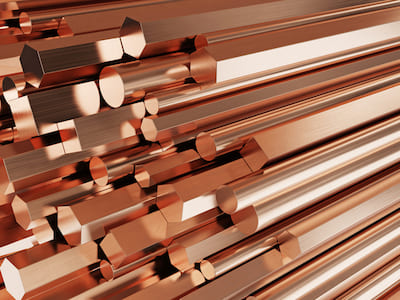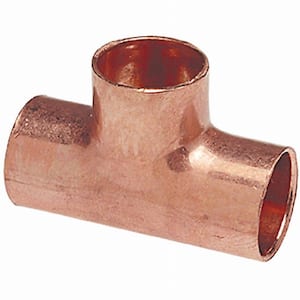Elevate Your Workmanship with High-Performance Copper Products for Artisans
Elevate Your Workmanship with High-Performance Copper Products for Artisans
Blog Article
How Copper Products Add To Lasting Practices in Various Fields
In renewable energy systems, for example, copper boosts the capability of solar and wind modern technologies, while its application in construction minimizes waste through durability. As sectors look for to adopt even more lasting practices, the function of copper could prove crucial in achieving environmental objectives.
Copper in Renewable Resource
Copper plays an important duty in the advancement of renewable resource innovations, acting as a vital conductor in different applications. Its phenomenal electric conductivity and resistance to deterioration make it a perfect material for electric wiring, which is important in photovoltaic panels, wind turbines, and energy storage systems. In solar photovoltaic systems, copper is utilized in the interconnections and circuitry, allowing efficient power conversion from sunlight to electrical energy.
In wind power, copper is indispensable to the generators and transformers that convert kinetic energy right into electric energy, making sure optimal efficiency and dependability. In addition, the demand for electric automobiles (EVs) is increasing, with copper being a key part in batteries, electric motors, and billing framework. The shift to EVs significantly enhances the demand for copper, as these vehicles normally use four times a lot more copper than traditional interior combustion engine automobiles.
As the globe looks for to alleviate climate change and change to lasting power sources, copper's function comes to be increasingly crucial. The material not just improves the effectiveness and sturdiness of renewable resource systems yet likewise sustains the more comprehensive goal of minimizing greenhouse gas discharges and promoting a lasting future.
Eco-Friendly Construction Products
In the last few years, there has actually been a notable change towards the adoption of environment-friendly building and construction materials in feedback to growing environmental issues. This change is motivated by the demand for sustainable choices that reduce eco-friendly footprints while maintaining architectural integrity and visual appeal.
Copper, recognized for its durability and recyclability, has actually become a principal in this industry. It can be used in roofing, plumbing, and electric systems, adding to power efficiency and decreasing waste. Copper's longevity implies less substitutes with time, additional boosting its sustainability profile.
Furthermore, materials such as bamboo, redeemed timber, and reused steel are gaining appeal. These options not only supply reduced ecological impact however also advertise source conservation. As developing codes increasingly stress sustainability, builders and engineers are integrating these products right into their jobs, fostering innovation in design.
The raising fostering of environmentally friendly building materials reflects a wider dedication to sustainability in the built setting. By prioritizing these materials, the construction market can dramatically minimize its carbon footprint, line up with regulatory criteria, and support a healthier ecological community for future generations. This trend marks an essential step in the direction of a more sustainable future in building.
Copper's Function in Healthcare
Recent research studies have highlighted the considerable duty of copper in medical care settings, specifically because of its antimicrobial buildings. Copper surfaces have actually been revealed to reduce the existence of microorganisms, including viruses and microorganisms, by as much as 99.9% within a short duration. This exceptional effectiveness makes copper a vital product for high-touch surface areas in medical facilities, such as doorknobs, bed rails, and IV posts, thus adding to enhanced infection control steps.
Along with its straight antimicrobial results, copper additionally contributes in the wider context of healthcare facility sustainability (Copper Products). By incorporating copper right into medical tools and home furnishings, healthcare facilities can decrease the occurrence of healthcare-associated infections (HAIs), which not only enhances client end results yet additionally reduces the expenses related to extensive hospital remains and added treatments
Moreover, copper's toughness and recyclability align with lasting methods, permitting liable resource management. As medical care systems significantly focus on both patient safety and ecological stewardship, the assimilation of copper products is becoming more widespread. This twin benefit underscores copper's look these up crucial payment to a healthier, much safer, and much more sustainable healthcare atmosphere.
Sustainability in Transport

Furthermore, copper's sturdiness and rust resistance add to the longevity of transportation important site infrastructure (Copper Products). In rail systems, as an example, copper elements enhance the integrity and effectiveness of signaling and power systems, vital for minimizing hold-ups and power consumption. Additionally, copper's duty in renewable resource systems, such as solar and wind, sustains sustainable transportation options by supplying clean power for electric transit options
Investments in copper modern technology not just foster sustainability but also promote financial development and task creation in green industries. As markets strive to meet strict ecological policies, the application of copper products in transportation emerges as a critical strategy in achieving sustainability objectives and advertising a cleaner, much more effective future.
Copper and Circular Economy
As the world progressively welcomes sustainability, the duty of copper in the round economic climate becomes ever much more considerable. Copper's innate residential or commercial properties-- such as its resilience, recyclability, and conductivity-- position it as a crucial material in a resource-efficient economy. The circular economic situation aims to minimize waste and maximize source usage via recycling and reusing materials, and copper master this respect.
The metal can be recycled forever without loss of quality, making it an excellent prospect for sustainable methods throughout numerous markets, consisting of building, electronic devices, and renewable resource. By recovering and recycling copper from end-of-life items, markets can considerably lower the demand for virgin materials, consequently reducing environmental effects connected with mining and handling.
Moreover, the combination of copper right into circular economic situation frameworks not only conserves sources yet also cultivates innovation. Businesses that prioritize copper reusing add to an extra lasting supply chain, boosting their competition while straightening with regulatory needs and consumer choices for eco liable items.
Conclusion
Finally, copper products substantially try this contribute to sustainable methods across numerous fields. Their important function in improving renewable resource modern technologies, advertising environment-friendly building materials, sustaining infection control in healthcare, facilitating lasting transportation, and symbolizing the principles of a circular economic situation underscores the versatility and importance of copper. By integrating copper into numerous applications, sectors can accomplish greater efficiency, decrease ecological impact, and line up with global sustainability goals, inevitably fostering a much more sustainable future.

Copper's excellent conductivity makes it a preferred product in electric lorry (EV) systems, enhancing energy efficiency and efficiency. In addition, copper's duty in sustainable power systems, such as solar and wind, sustains lasting transportation solutions by giving tidy energy for electrical transit choices.
Their essential role in enhancing sustainable energy technologies, promoting environment-friendly building products, sustaining infection control in health care, promoting sustainable transport, and personifying the principles of a round economic climate underscores the flexibility and significance of copper.
Report this page